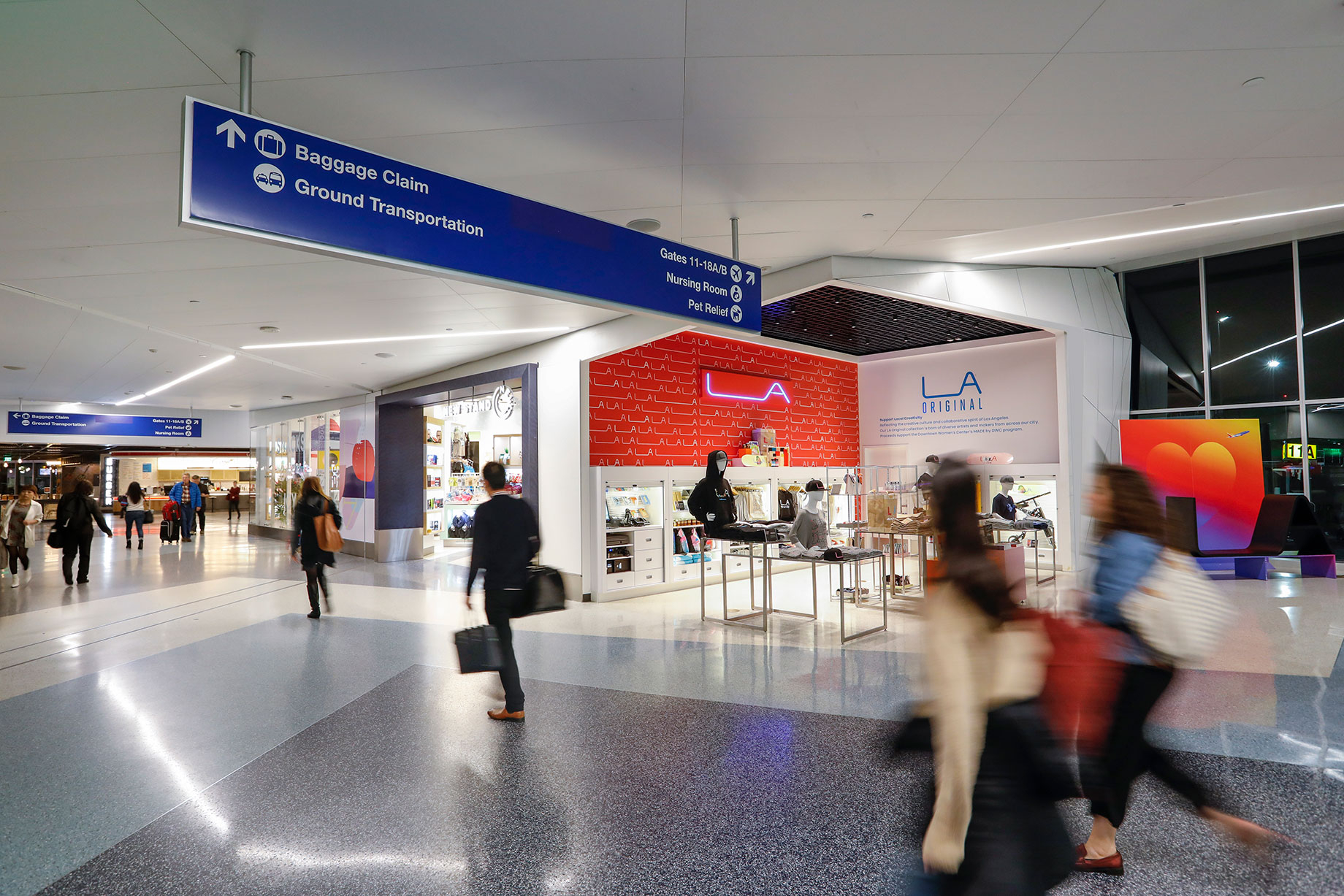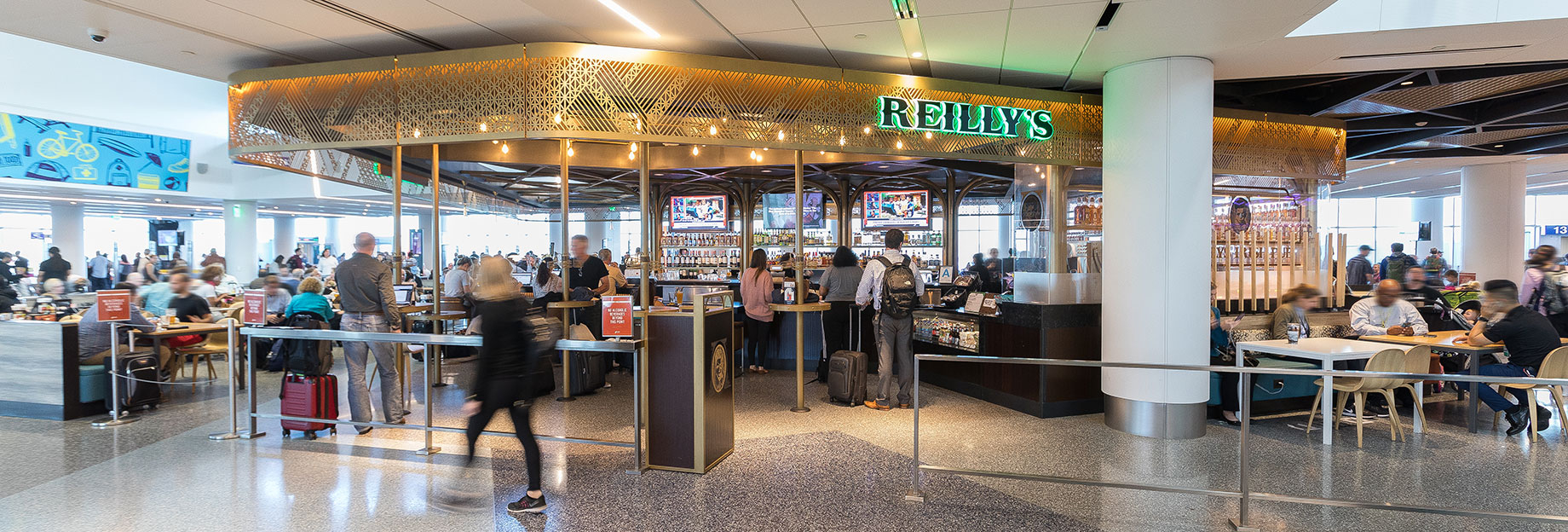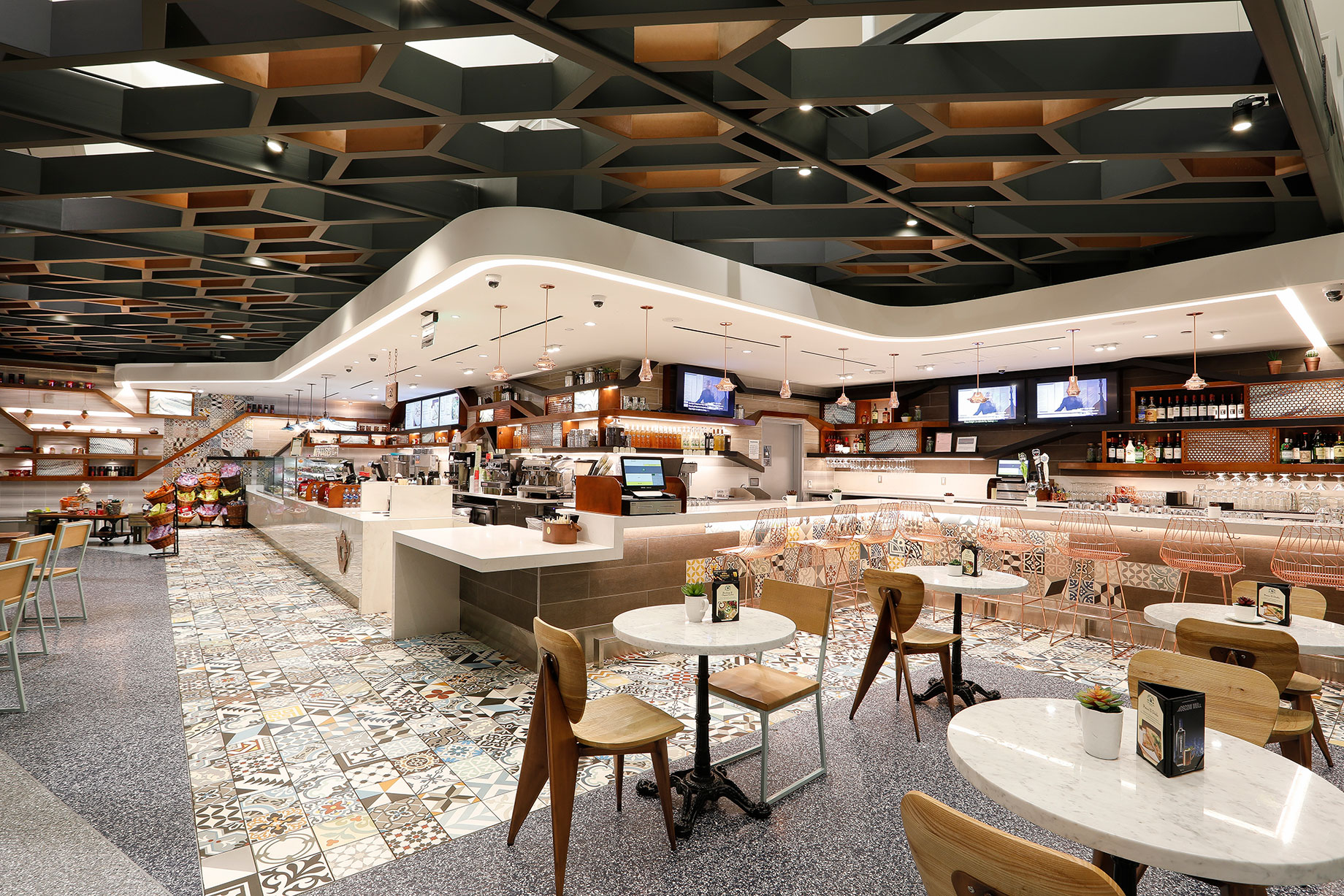Travelers passing through Los Angeles International Airport Terminal 1 in late 2018 experienced something new, thanks to a $517 million redevelopment. Los Angeles World Airports, Unibail-
Rodamco-Westfield and Southwest Airlines (the only airline operating at the terminal) transformed the site.

The project is part of an ongoing renovation of LAX that began in 2016 with the redesign of terminals 2 and 6. Now under way is American Airlines’ $1.6 billion redevelopment of terminals 4 and 5. A tram is scheduled to open in 2023. LAX is the third-busiest airport in the U.S., according to the Federal Aviation Administration, and saw nearly 708,000 flights in 2018.
“Our goal was to modernize the aging terminal and create a new, uniquely Southwest and L.A. experience for more than 10 million annual Southwest customers,” says Dan Hough, a URW vice president who is asset lead for LAX. “The end result is a half-billion-dollar, curb-to-gate transformation that truly sets the bar for what’s possible in airport-terminal redevelopment.”

The project incorporates a modernized check-in experience, fully automated baggage systems, expanded restrooms, new customer-boarding bridges, unobstructed sight lines and enhanced waiting-lounge environments. Passengers also encountered some 23,500 square feet of new retail and food-and-beverage tenants. URW manages and leases the retail component for Los Angeles World Airports. “Working together, we’re creating an experience that offers the sights, sounds, feelings and flavors of L.A. right here in the airport, so that travelers from all over the world can experience the energy and creativity of this amazing city,” said Hough.
URW tried to focus on unique concepts. “Our goal was to create an experience that truly aligns with Southwest’s brand,” Hough said. “It’s about fun. It’s about friendliness and creating a sense of warmth. These were the elements that needed to shine through the experience. On top of that, we wanted to give the terminal the local character that both we and LAWA were looking for. That meant bringing in brands native to Los Angeles and creating an only-at-LAX experience.”
TIMELINE
- 1984 LAX Terminal 1 opens in time for the Summer Olympic Games
- 2012 Los Angeles World Airports chooses URW Airports as commercial manager for terminals 1, 2, 3 and 6 and for the Tom Bradley International Terminal
- 2015 Airport unveils Bradley International Terminal
- 2016 Renovated terminals 2 and 6 open
- November 2018 Terminal 1 reopens with 22 new retail and food-and-beverage tenants
URW used a competitive process to lease the commercial space, providing guidelines to prospective bidders and selecting proposals that fit with the collective vision for the terminal.
Architecture firms Corgan and PGAL created an East-meets-West interior design, featuring origami-inspired elements, sculpture and lighting fixtures. The designers employed elements to help unify its four retail districts and established uniform standards for queuing, circulation and sight lines to amenities and gates.

“There’s a huge amount of foot traffic in airports and an experience that has historically been underwhelming,” said Hough. “We understand that airports weren’t originally conceived and built to provide a unique journey and local experiences; they were built to process and move people and baggage. That’s it, but we’ve come a long way since then.”
The day is fast approaching when every retail amenity available on the street will be found also in the airport, Hough says. “That’s what customers expect today,” he asserts. “They expect service that’s entirely on their terms, when and how they want it. A good customer experience not only elevates the overall experience for guests, but also increases customer satisfaction and raises revenue for the airport and its partners.”
By Ben Johnson
Contributor, Commerce + Communities Today


